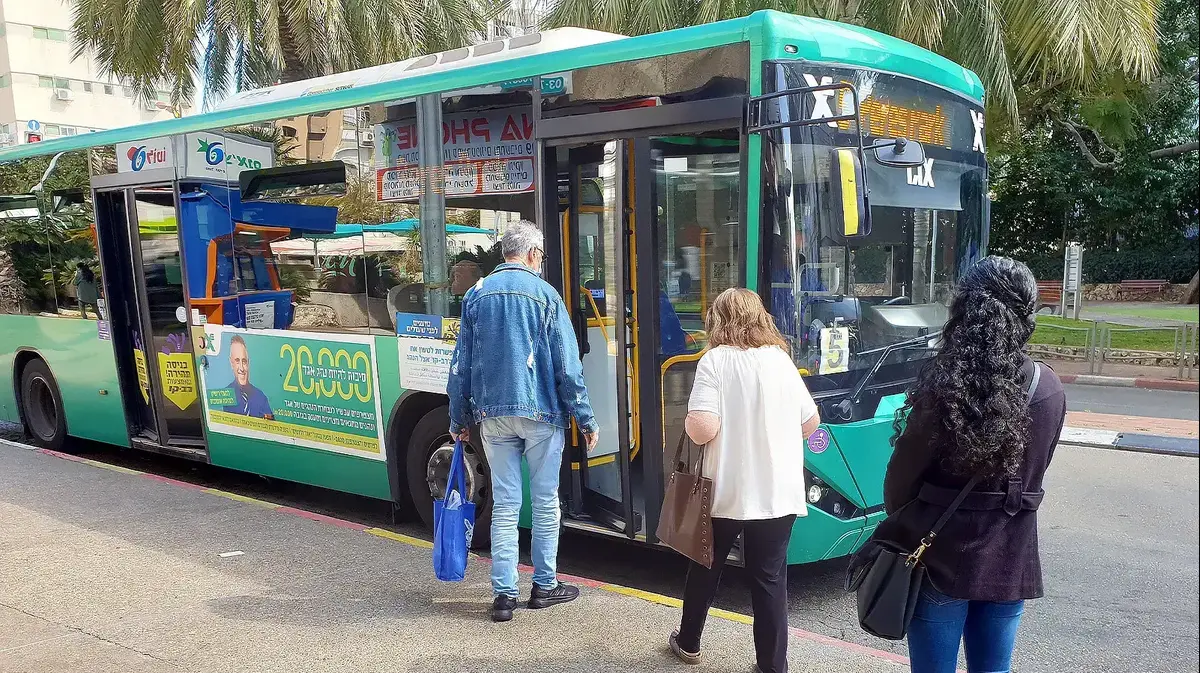Line 378 from the Western Negev to Tel Aviv: once an hour during peak hours.
Want to help the periphery?
Start here/Wala system!, surfer photos
It's amazing how every transport minister who takes office, immediately wants to change world orders through ambitious "reforms", or erase all traces of the moves led by his predecessor.
Only in the end there is nothing left of them and nothing but the desire to make a mark.
Every transport minister will know: demand is generated through a good supply, and it's not just through pocket money and price reductions.
For example, this was the case with Merav Michaeli in the previous term when she led the "Derech Sheveh" reform, claiming that the move would lower the average cost of travel, but in practice it caused the price of travel to increase in some cities, including cities in the periphery, compared to the reduction of prices in large cities.
The demand for traveling by public transport obviously did not increase and even deteriorated.
The same is happening now with Minister Regev's "Transportation Justice" reform which will not help at all.
Social justice reform in Vala:
it's not automatic: what to do to get the benefits in reform
Opinion: this is what political bribery looks like, not real help to the periphery
Good public transportation is a strategic resource, which makes it possible to live in the periphery and work in the center/image processing, Yaniv Khalif
Avicha Sheli/courtesy of those photographed
The minister of transportation needs to understand first and foremost that the frequency planning and coverage of public transportation in Israel is deficient, unequal and inefficient, clearly discriminating against the periphery (not as a slogan) and the examples of this are many.
Ofakim and Netivot which are neighboring cities and with the same size of residents, but there are 200 trips a day from Ofakim to Be'er Sheva where many residents of the south work, study or receive medical treatment.
This is compared to only 60 daily trips from routes to Be'er Sheva and back.
Another example: during the morning and evening rush hours, the high-speed line 378 from the Western Negev to Tel Aviv is operated only once an hour.
During the rest of the day when there is no load, it is activated twice an hour.
Since the departure of Transport Minister Israel Katz from the Transport Minister's Office in 2019, there has been a constant deterioration in the conditions of public transport in the periphery, especially regarding the train which was a tremendous engine of growth for the region.
For example, in the Western Negev, the frequency of trains was reduced by more than 60%, many trains were canceled at night and on weekends, and the travel time to Tel Aviv was extended from an hour to an hour and forty minutes.
Now during the war, the travel time even reaches two and a half hours in each direction.
All of this from an incorrect assumption and analysis by the captains at the Ministry of Transportation, Israel Railways and the bus companies, according to which "supply is given according to demand", instead of "a good supply is given to stimulate demand".
They are trying to understand that the public in Israel and in the periphery in particular, has completely lost faith in public transportation and prefers the private car.
Public transportation is a much more significant strategic resource than people tend to think.
Thanks to good public transportation, residents from the center can be made to move to live or work in the periphery, and relieve congestion in the big cities.
Successful bus and train services also reduce air pollution and the enormous congestion that is increasing on all Israeli roads, and of course also the number of deaths and injuries from road accidents.
Even if public transportation in Israel is free for all populations, there will still not be an influx to it as long as it is not planned efficiently and intelligently in terms of frequency and method of coverage.
This is what Israel's transport ministers should focus on.
The writer is a blind social activist, a resident of Netivot
More on the same topic:
Public Transport

